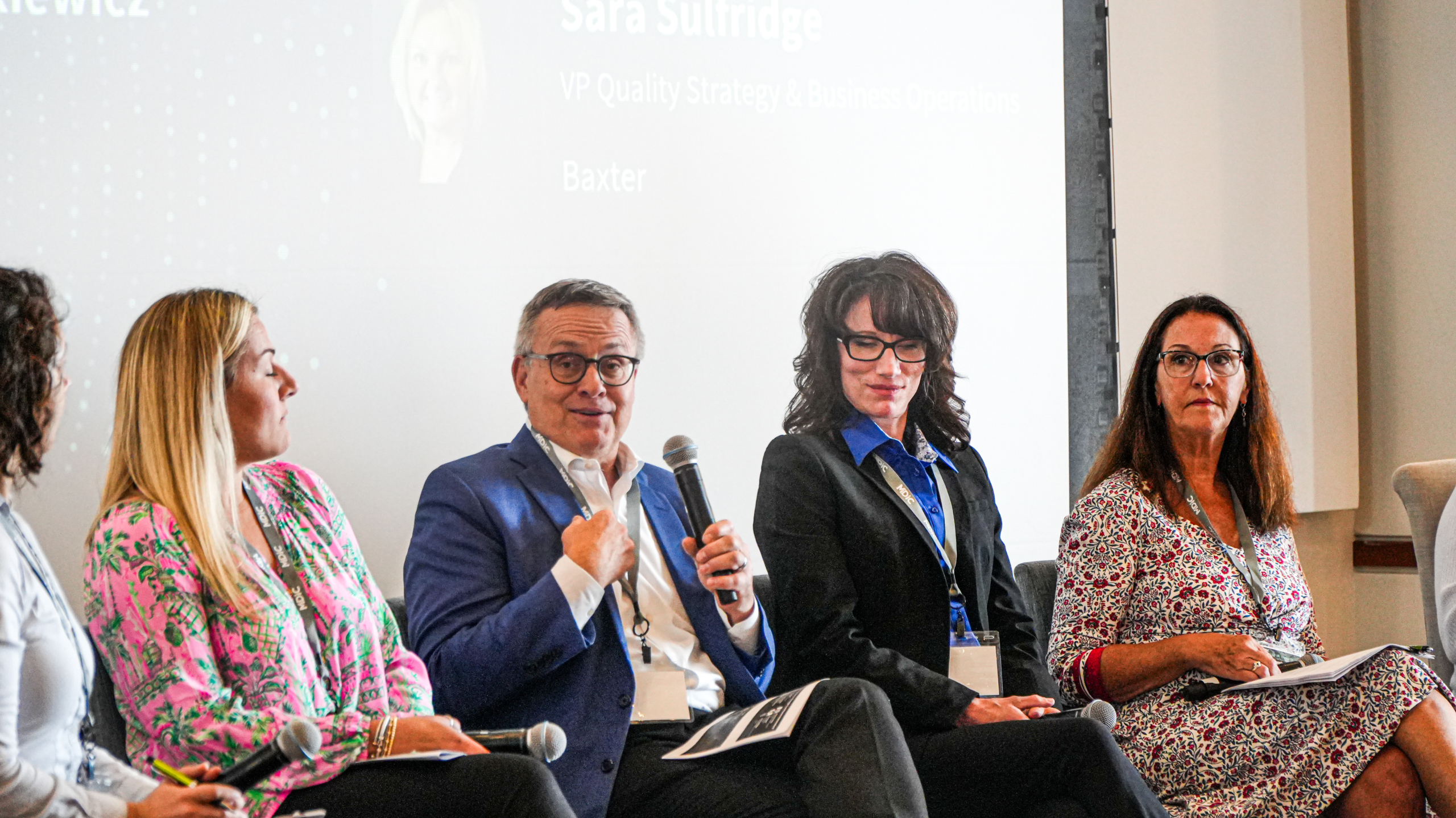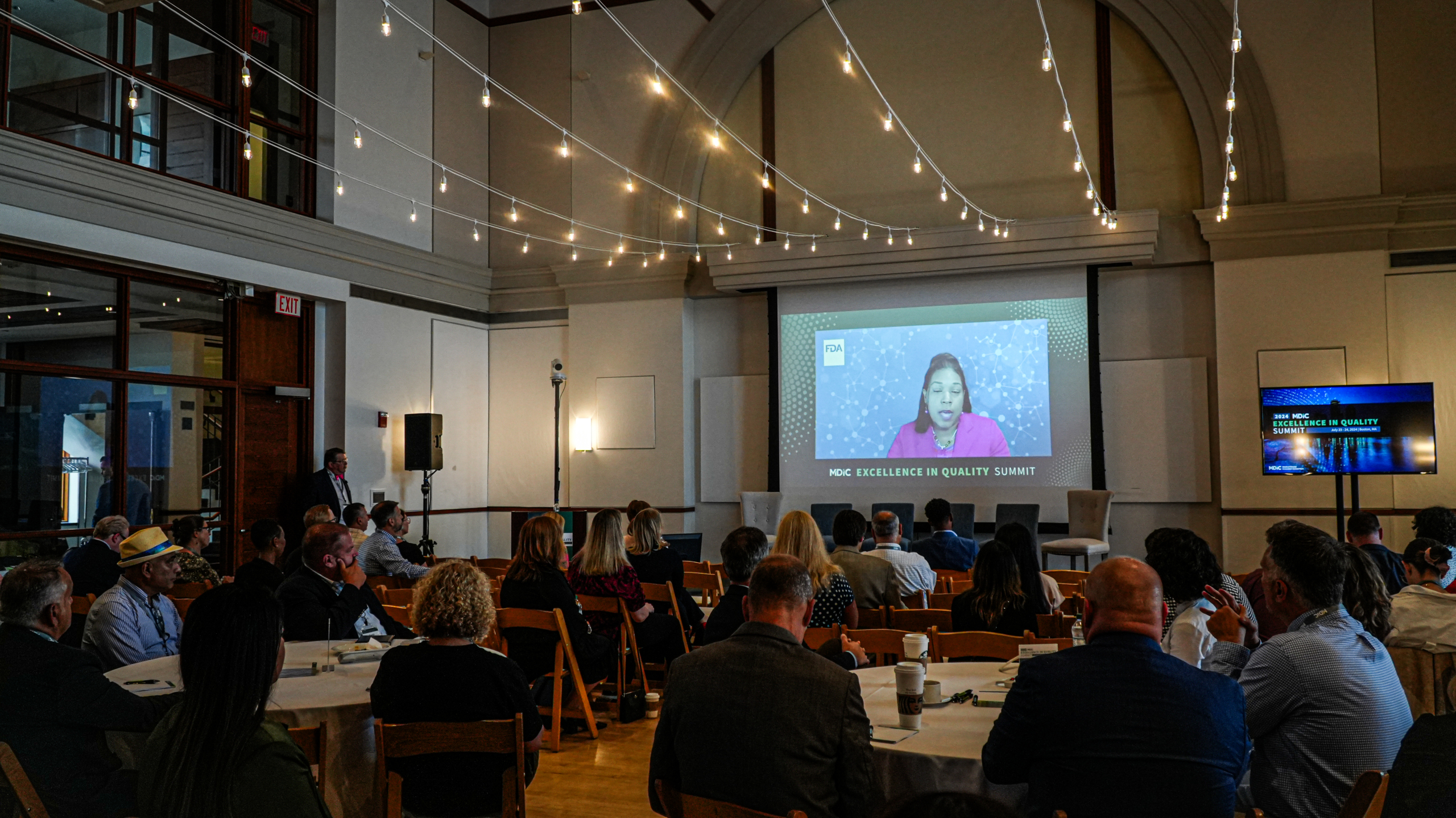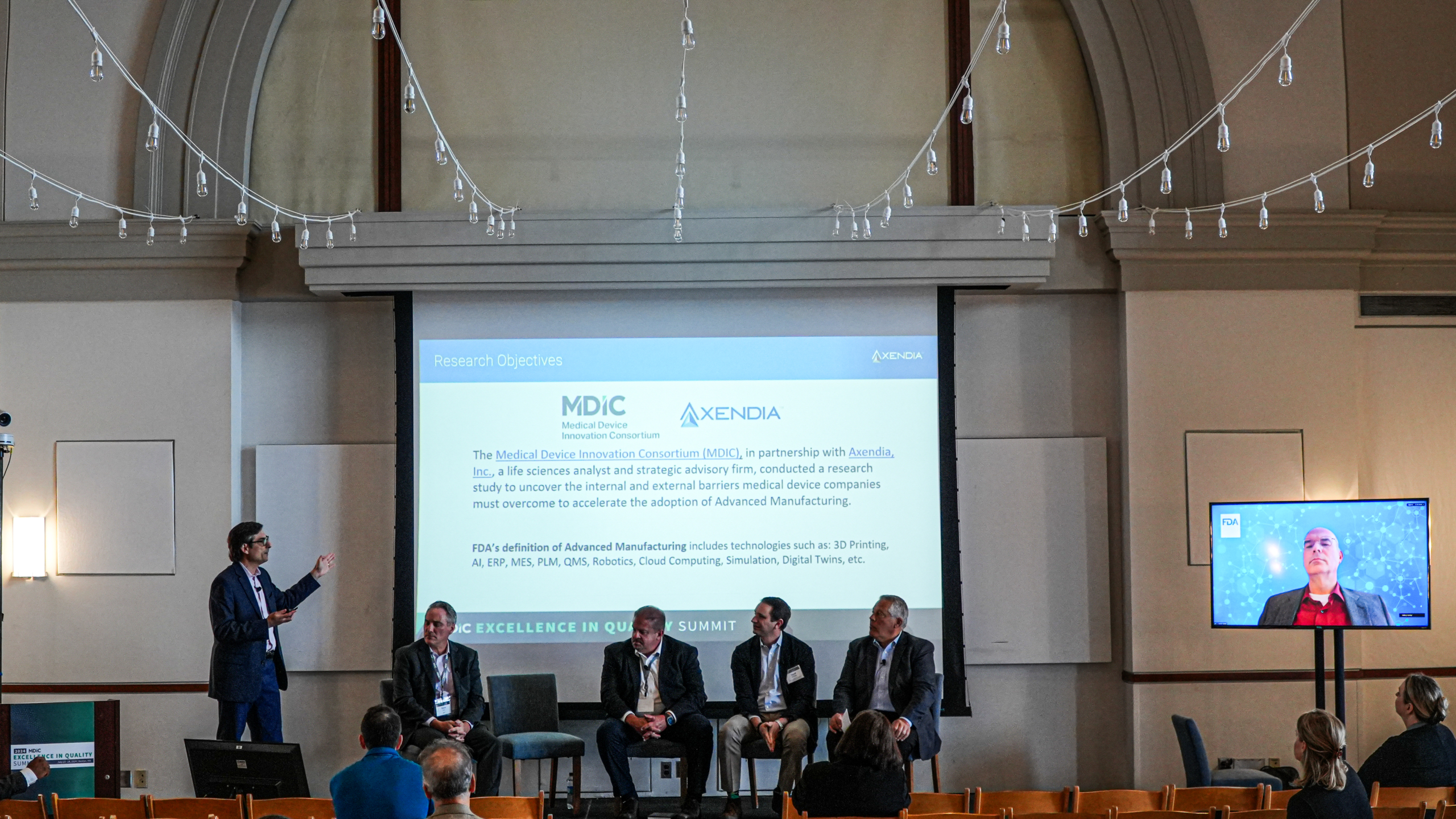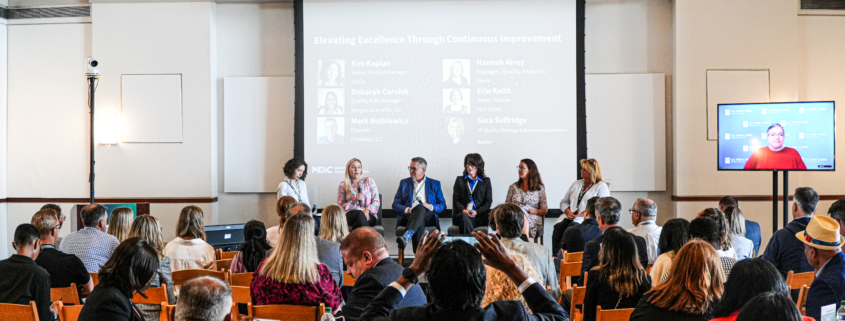The MDIC Excellence in Quality Summit brought together industry leaders, regulatory authorities, and quality professionals, all committed to advancing quality practices throughout the medical device lifecycle. Over the course of two days, the Summit explored innovative strategies and shared insights that emphasized the critical importance of integrating a culture of quality within organizations, harnessing advanced technologies, and continually striving for improvement.
Championing a Culture of Quality
Day one of the Summit underscored the role of organizational culture in achieving quality objectives. Industry veterans shared real-world examples of successful culture transformations, highlighting how a quality-centric mindset impacts everything from patient safety to business outcomes. Pat Shaffer, managing director at FTI Consulting, captured this sentiment, stating, “Culture impacts everything from your bottom line to patient safety.“
A Risk-Based Approach to CAPA
The summit explored innovative approaches to Corrective and Preventive Actions (CAPAs), a key component of quality management systems. Historically criticized for its emphasis on compliance and documentation, the CAPA process has often resulted in burdensome paperwork and delays. However, MDIC’s Case for Quality Collaborative Community is addressing this by promoting a risk-based approach to streamline and improve CAPA practices across the industry. This initiative was exemplified by a case study showcasing a 25% improvement in CAPA resolution times, offering valuable lessons for adoption and implementation.
Christine Ketapuram, senior director of Quality Strategy at Veeva Systems, reflected on this approach, stating “We at Veeva see opportunities with our customers to partner and streamline the CAPA process using a risk-based approach.” The discussion emphasized that prioritizing risks, rather than just compliance, can lead to better outcomes throughout the entire product lifecycle.
Enhancing Quality Excellence through VIP and AI/ML-Enhanced QMS
A significant theme at the Summit was the emphasis on ongoing quality enhancement beyond regulatory compliance, with the FDA’s Voluntary Improvement Program (VIP) serving as a focal point. Industry experts shared practical strategies for leveraging VIP to drive innovation and improve patient outcomes. Mark Rutkiewicz, founder of Consiliso LLC, highlighted the program’s value, noting, “VIP is a great program incentivized by the FDA, focused on continuous improvement and high-need areas. It’s crucial to constantly adapt to enhance your processes.“

Mark Rutkiewicz speaking during the “Elevating Excellence Through Continuous Improvement” panel at MDIC’s Excellence in Quality Summit
The Summit also explored the transformative potential of technology in advancing quality management. Sessions on AI and machine learning delved into how these technologies can optimize processes, enhance data analysis, and improve decision-making. Experts from the FDA Industry CSA (FICSA) introduced Computer Software Assurance (CSA), providing interactive examples of AI/ML validation and implementation. The CSA framework offers a roadmap for integrating these technologies into quality systems while ensuring patient safety.
Embarking on the Continuous Improvement Voyage
Day two continued with a dynamic lineup of speakers and panel presentations that connected the threads between elevating quality and advanced manufacturing and transforming quality through patient engagement. Michelle Tarver, deputy center director at the FDA Center for Devices and Radiological Health (CDRH), opened the program with a compelling message: “Innovation springs from a culture of introspection and a passion for continuous improvement.” She emphasized the importance of shared learnings, experimentation, and aspirational targets, highlighting that safety is a core value where daily actions identify and mitigate risks before they could cause harm.
This set the stage for continued discussions on the Voluntary Improvement Program (VIP) and the Accelerate Sustainable Capability (ASC) Pilot Study. Erin Keith, senior advisor at FDA-CDRH, explained how this program offers benefits such as a window of time where typical surveillance inspections are waived, enabling a greater focus on incorporating innovative practices and streamlined submission changes.

Keisha Thomas, Director, Compliance and Quality, FDA CDRH offers remarks at the MDIC Excellence in Quality Summit
Modernizing Recall Processes
The Summit also addressed the evolution of recall processes, emphasizing the transition from paper-based to digital systems to enhance efficiency and patient safety. Steve Silverman, president of The Silverman Group, remarked on the significance of this shift, noting, “Moving beyond antiquated paper-based processes is a significant step towards modernizing recalls.”
Attendees explored the challenges and opportunities of implementing digital recall systems, which can improve response times, reduce costs, and enhance patient outcomes. Mayo Clinic Enterprise Recall Analyst Amy Conway shared her perspective: “Being a healthcare provider… and meeting these manufacturers [while] learning about the process when they do a recall is amazing. I didn’t really realize how much went into it until I was at this event.“
Pursuit of Excellence Through the Baldrige Framework
The Baldrige Framework was another highlight of the Summit, presented as a valuable tool for achieving sustained performance excellence. Laura Kinney, board chair of Partners in Performance Excellence (PiPEx), emphasized that the framework “helps organizations go beyond compliance to achieve excellence through effective governance, leadership, and operational efficiency.”
Attendees explored practical applications of the Baldrige Framework and its potential to drive organizational improvement, alongside discussions on robust risk management strategies essential in the complex medical device industry. Garth Conrad, vice president of Quality at Flex Health Solutions, shared insights on proactive risk management, underscoring the importance of identifying and mitigating challenges before they escalate.
Accelerating the Adoption of Advanced Manufacturing

Daniel Matlis kicks off the “Accelerating the Adoption of Advanced Manufacturing” panel—featuring Daniel Walter, Policy Analyst, FDA-CDRH
Finally, the Summit delved into the future of medical device manufacturing, exploring the transformative potential of AI, automation, and digital technologies. Panelists discussed how companies are addressing barriers such as ROI and internal expertise, while debunking fears and misconceptions surrounding advanced manufacturing. Daniel Walter, policy analyst at FDA-CDRH, emphasized, “Organizations should prioritize improving and transforming their processes rather than focusing solely on technology. Technology should be viewed as a tool that enables these improvements.”
The MDIC Excellence in Quality Summit provided a wealth of knowledge and inspiration, equipping attendees with actionable insights to drive quality excellence within their organizations. As the medical device landscape continues to evolve, a steadfast commitment to quality, innovation, and patient safety will be essential for future success.
Learn more about future MDIC events.


